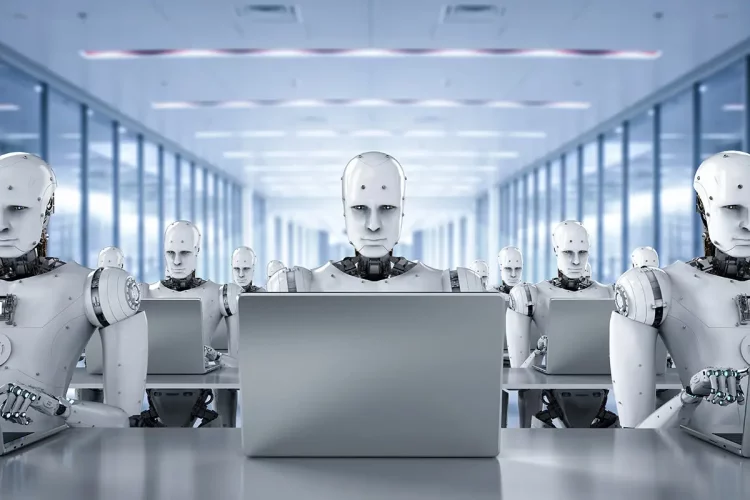The Rise of AI – generated Code in Google
Google’s AI – generated Code Revelation
Surprising news! More than 25% of new code in Google is now generated by AI. During Google’s Q3 earnings call, CEO Sundar Pichai disclosed that over 25% of new code in Google is generated by AI and then reviewed and approved by engineers.
The Impact on Google’s Financial Performance
Apart from this, the earnings report shows that Alphabet, Google’s parent company, had a revenue of $88.3 billion this quarter. Among this, Google Services (including Search) revenue was $76.5 billion, with a 13% year – on – year growth, and Google Cloud revenue was $11.4 billion, with a 35% year – on – year growth. Behind these figures, AI has not only become an efficiency – enhancing tool within Google but has also significantly driven the revenue growth this quarter.
Programmers’ Concerns
However, after this news was announced, programmers, as the workforce, started to worry. Will AI programming eventually replace them completely? After all, the fact before us is that more and more large companies at home and abroad have begun to use AI to generate code.
The Trend of AI – generated Code in Big Tech
Google’s Transformation by AI
In short, both inside and outside Google are being rapidly reshaped by AI, and using AI to write code is just one example. Looking specifically at the details of Google’s Q3 earnings report, the data shows that Alphabet, Google’s parent company, achieved a revenue of $88.268 billion in the third quarter, with a 15% year – on – year growth, higher than the analysts’ expectation of $86.44 billion. The company’s net profit was $26.301 billion, with a 34% year – on – year growth. On the day the earnings report was announced (October 29), Google’s stock price closed at $169.68 per share, rising nearly 6% after – hours, with a total market value of $2.09 trillion.
Business Performance Analysis
Digging deeper into the business behind these numbers, Google’s two core businesses – advertising and cloud services – both exceeded market expectations. The advertising business grew from $59.647 billion in the same period last year to $65.854 billion, higher than the market – expected $65.5 billion. The cloud business grew from $84.11 billion in the same period last year to $113.53 billion, with a nearly 35% year – on – year growth. Additionally, Google Search, Google’s largest business division, remains the largest revenue contributor, growing from $44.026 billion in the same period last year to $49.385 billion, with a 12% year – on – year growth.

AI’s Contribution to Google’s Success
To sum up, in the words of CEO Sundar Pichai, the company’s long – term focus and investment in AI are having a positive impact. In the search domain, new AI features have expanded what and how people can search. In the cloud computing field, AI solutions have driven up the product usage rate of existing customers, attracted new customers, and won more large orders. And in the YouTube business, advertising and subscription revenues have cumulatively exceeded $50 billion for the first time in the past four quarters. Yes, it’s all because of AI. AI has not only brought Google a significant revenue boost but has also initiated an internal efficiency – improvement reform. Hence, the fact that more than 25% of new code is generated by AI has become a “capital” that Google can showcase during the earnings call. And it’s not just Google; the same is happening in large companies at home and abroad.
More Examples from Big Tech
Back in April this year, Robin Li of Baidu announced a set of data at the Baidu AI Developer Conference: as high as 27% of the daily newly added code in Baidu is automatically generated by the Comate intelligent code assistant. During the same period, the news of “the first AI employee joining” in Alibaba caused widespread discussion. At that time, Alibaba Cloud announced that it would start to fully implement AI programming internally, using Tongyi Lingma to assist programmers in writing code, reading code, debugging, and optimizing code. And relevant company personnel revealed that in the future, 20% of the code will be written by Tongyi Lingma, but programmers will still be the core of R & D, and they will have more time to focus on system design and core business development. Now, several months later, the proportion of these big companies using AI to generate code is only going to be higher. In fact, the use of AI to generate code is self – evident because for big companies and programmers, cost reduction and efficiency improvement are clear facts right in front of them. On Zhihu, most practitioners in relevant Q&A also admit that this is an irresistible trend in AI development.
The Future of Programmers in the AI Era
Programmers’ Concerns about Unemployment
What we, as workers, are more worried about is the long – term benefits. Just as one netizen joked, will programmers end up unemployed while writing code?
The Importance of Prompt Engineering
For the above concerns, at least for now, multiple voices still emphasize the necessity of human programmers. In the cooperation between programmers and AI, mastering prompt engineering has become the key. After all, this means that as long as one can use prompts, everyone can program. This has also sparked a long – standing controversy: will prompt engineers eventually “eliminate” programmers? In response to this, most senior programmers say they are not worried about this issue. They claim that prompt engineering will still be needed in the future, and in fact, those programmers who master prompt engineering will be more in demand. Looking at the most intuitive market recruitment data, pure prompt engineers currently have a six – figure annual salary.











































Discussion about this post